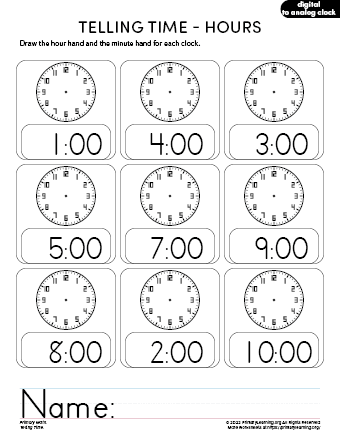miércoles, 30 de abril de 2025
EVALUATIVE WORKSHOP
Tema: Can(ability or permission) – Have to(something
you need to do) – Must(obligation) – Should(advice)
Nombres: _________________________________________________________
Grado:
_______
Fecha: ___________
Parte 1: Completa las oraciones con can, must, should
o have to.
- You __________ brush your teeth every day.
(________ cepillarte los dientes todos los días.) - I __________ speak three languages.
(________ hablar tres idiomas.) - She __________ wear a uniform at school. It's the rule.
(________ usar uniforme en la escuela. Es la regla.) - They __________ go now if they want to catch
the bus.
(________ irse ahora si quieren alcanzar el bus.) - We __________ be quiet in the library.
(________ estar en silencio en la biblioteca.) - You __________ eat so much candy. It’s not
healthy.
(________ comer tantos dulces. No es saludable.) - He __________ play the guitar very well.
(________ tocar la guitarra muy bien.) - We __________ bring our own lunch to school. It’s not provided.
(________ traer nuestro propio almuerzo a la escuela. No lo dan allá.) - You __________ do your homework before
watching TV.
(________ hacer tu tarea antes de ver televisión.) - I __________ finish this project today. It's due tomorrow.
(________ terminar este proyecto hoy. Se entrega mañana.)
Parte 2: Escoge la opción correcta.
- You _________ cross the street without
looking. It's
dangerous.
(________ cruzar la calle sin mirar. Es peligroso.)
A. can B. should C. mustn't D. have to - I _________ go to the doctor. I feel really
sick.
(________ ir al doctor. Me siento muy enfermo.)
A. must B. can C. should D. have - We _________ wear helmets when we ride a bike.
It's
the law.
(________ usar casco cuando montamos bicicleta. Es la ley.)
A. can B. should C. must D. may - _________ I go to the bathroom, please?
(________ ir al baño, por favor?)
A. Must B. Should C. Have to D. Can - My brother _________ play the piano and the
violin.
(Mi hermano _________ tocar el piano y el violín.)
A. have to B. should C. can D. must - You _________ drink more water every day.
(________ tomar más agua todos los días.)
A. can B. mustn't C. should D. have to - They _________ do their chores before playing
video games.
(________ hacer sus deberes antes de jugar videojuegos.)
A. can B. must C. should D. could - We _________ arrive at school before 7:00 a.m.
(________ llegar a la escuela antes de las 7:00 a.m.)
A. must B. should C. can D. may - You _________ be late for the exam. It’s very important.
(________ llegar tarde al examen. Es muy importante.)
A. can B. must C. shouldn't D. mustn't - I _________ visit my grandma this weekend. She misses me.
(________ visitar a mi abuela este fin de semana. Me extraña.)
A. must B. should C. can D. have to
EVALUATIVE WORKSHOP
Good morning my dear students today we are going to finish these 4 modal verbs.
Tema: Can(ability or permission) – Have to(something
you need to do) – Must(obligation) – Should(advice)
Nombres: _____________________________________________________
Grado: _______
Fecha:
___________
Parte 1: Completa las siguientes oraciones usando el modal adecuado.
- You ___________ study if you want to pass the final exam.(________ estudiar si quieres pasar el examen final.)
- We ___________ talk during the test. It's forbidden.(________ hablar durante el examen. Está prohibido.)
- I ___________ drive a car, but I don't have a license.(________ conducir un auto, pero no tengo licencia.)
- She ___________ wear a mask at the hospital. It's mandatory.(________ usar tapabocas en el hospital. Es obligatorio.)
- He ___________ exercise more if he wants to lose weight.(________ hacer más ejercicio si quiere bajar de peso.)
- You ___________ not interrupt people when they are talking.(________ interrumpir a las personas cuando están hablando.)
- They ___________ stay up late. There's no school tomorrow.(________ trasnochar. No hay clases mañana.)
- We ___________ clean the kitchen. It's a mess!(________ limpiar la cocina. ¡Está desordenada!)
- You ___________ bring your ID to vote.(________ traer tu cédula para votar.)
- I ___________ call my parents. I haven’t talked to them in a week.(________ llamar a mis padres. No he hablado con ellos en una semana.)
Parte 2: Selecciona la mejor opción para completar cada oración.
- Students _________ submit their essays by Friday.(Los estudiantes _________ entregar sus ensayos antes del viernes.)A. should B. can C. must D. might
- You _________ forget your passport when you travel abroad.(________ olvidar tu pasaporte cuando viajas al extranjero.)A. can B. mustn’t C. should D. have to
- _________ we take a break now?(________ tomar un descanso ahora?)A. Must B. Have to C. Can D. Should
- Everyone _________ follow the safety rules at work.(Todos _________ seguir las normas de seguridad en el trabajo.)A. should B. can C. must D. might
- I think you _________ try the new Italian restaurant. It's excellent.(Creo que _________ probar el nuevo restaurante italiano. Es excelente.)A. have to B. mustn't C. should D. can’t
- She _________ go to the doctor if the pain continues.(________ ir al doctor si el dolor continúa.)A. should B. can C. mustn’t D. has to
- You _________ be on time for your interview.(________ llegar a tiempo para tu entrevista.)A. should B. have to C. can D. must
- We _________ visit the museum today, or we can go tomorrow.(________ visitar el museo hoy, o podemos ir mañana.)A. must B. should C. can D. have to
- I _________ speak to the manager, please?(¿________ hablar con el gerente, por favor?)A. must B. can C. should D. have to
- You _________ cheat on the test. It’s against the rules.(________ copiar en el examen. Va contra las reglas.)A. can B. must C. shouldn’t D. mustn’t
lunes, 28 de abril de 2025
PRESENT PROGRESSIVE VS PRESENT SIMPLE
PRESENT SIMPLE VS.
PRESENT PROGRESSIVE
Lee cada pregunta y elige la
opción correcta
1. Which sentence is in Present Simple?
2. Choose the correct form:
My brother ___ to school by bus every day.
3. What are you doing right now? (Choose the Present Progressive
sentence.)
4. Complete:
Listen! The baby ___ .
5. Which sentence is NOT in Present Progressive?
6. Choose the correct sentence for a daily routine:
7. Complete the sentence:
Look! The cat ___ under the table.
8. Which verb form fits better?
My parents ___ breakfast at 7 a.m. every day.
9. Identify the Present Progressive sentence:
10. Choose the correct answer:
Right now, I ___ my homework.
VERB TO BE + EMOTIONS
Good morning my dear kids, today we are going to review about can/can't and then we practice the verb to be.
In the notebook:
Today is April 28th, 2025
1.Verb to be:
2.Emotions:
viernes, 25 de abril de 2025
PRACTICE: OBLIGATION - ADVICE
Modal
Verbs: Must / Should – Elige la opción correcta
- All passengers must / should / might
wear a seatbelt.
(Usar cinturón de seguridad en el vehículo.)
- You must / should / would respect
deadlines at work.
(Respetar los plazos en el trabajo.)
- We must / could / should conserve water
during droughts.
(Conservar agua durante las sequías.)
- People must / may / should not smoke in
public places.
(No fumar en lugares públicos.)
- You must / should / can submit your
assignment today.
(Entregar el trabajo hoy.)
- Scientists must / should / will follow
strict procedures.
(Seguir procedimientos estrictos.)
- Students must / could / should bring
their ID to the exam.
(Traer la identificación al examen.)
- She must / might / should follow the
doctor’s instructions.
(Seguir las instrucciones del médico.)
- The government must / should / may protect
the environment.
(Proteger el medio ambiente.)
- We must / should / can attend the
conference this afternoon.
(Asistir a la conferencia esta tarde.)
- You should / must / might eat a
balanced diet.
(Comer una dieta equilibrada.)
- He should / must / shall consider
taking a gap year.
(Considerar tomarse un año sabático.)
- We should / must / may check the facts
before sharing news.
(Verificar los hechos antes de compartir noticias.)
- They should / could / must be more
careful with their money.
(Tener más cuidado con su dinero.)
- People should / must / might speak out
against injustice.
(Alzar la voz contra la injusticia.)
- I should / must / could revise more for
the final exam.
(Repasar más para el examen final.)
- You should / can / must use a planner
to stay organized.
(Usar una agenda para mantenerse organizado.)
- She should / might / must explore
different career options.
(Explorar diferentes opciones de carrera.)
- They should / could / must participate
in community service.
(Participar en servicio comunitario.)
- We should / must / may avoid
procrastinating.
(Evitar dejar las cosas para después.)
PRACTICE: OBLIGATION - ADVICE
Modal Verbs: Must / Should – Elige la opción correcta
· You must / should / can wear a helmet when you
ride a bike.
(__usar
casco cuando montas bicicleta.)
· We must / should / could study for the exam
tomorrow.
(___estudiar
para el examen de mañana.)
· Drivers must / should / might stop at red
lights.
(Los
conductores ___detenerse en los semáforos en rojo.)
· I must / should / would finish my homework
before playing.
(__
terminar la tarea antes de jugar.)
· You must / could / should not use your phone
during class.
(___usar
el celular durante clase.)
· People must / should / might recycle more to
help the planet.
(La
gente ___ reciclar más para ayudar al planeta.)
· Students should / must / may be respectful to
their partners.
(Los
estudiantes ___ser respetuosos con sus compañeros.)
· You must / can / should take this medicine
twice a day.
(__tomar
esta medicina dos veces al día.)
· She must / should / could wear glasses to read.
(Ella
__ usar gafas para leer.)
· We must / should / can follow the school rules.
(___seguir
las reglas del colegio.)
· You should / must / may drink more water every
day.
(__tomar
más agua cada día.)
· He should / must / could see a doctor about
that cough.
(Él
__ver a un médico por esa tos.)
· They should / must / will try to arrive
earlier.
(Ellos
__intentar llegar más temprano.)
· You should / must / may rest if you're feeling
sick.
(___descansar
si te sientes enfermo.)
· She should / must / could eat more vegetables.
(Ella
__comer más vegetales.)
· We should / must / will go to the library
together.
(___ir
juntos a la biblioteca.)
· He should / must / can help his little brother
with homework.
(Él
__ayudar a su hermanito con la tarea.)
· You should / must / shall talk to your teacher
about the test.
(__hablar
con tu profesor sobre el examen.)
· They should / must / may clean their room
before guests arrive.
(__limpiar
su cuarto antes de que lleguen los invitados.)
·
I should
/ must / might go to bed earlier.
(___acostarme más temprano.)
MULTIPLE CHOICE
Good morning my dear students, Let's continue practicing.
Present Progressive
Choose the correct one:
- · He is / are / am dancing.
- · I am / is / are talking on the phone.
- · They is / are / am playing video games.
- · She are / am / is doing her homework.
- · We is / are / am studying English.
- · You is / are / am watching TV.
- · My brother am / is / are reading a book.
- · The dogs is / are / am running in the park.
- · I are / is / am eating lunch.
- · They are / am / is listening to music.
- · She am / is / are brushing her hair.
- · We is / am / are walking to school.
- · You is / are / am drawing a picture.
- · It am / are / is raining outside.
- · My parents is / are / am cooking dinner.
- · He are / is / am playing the guitar.
- · I am / is / are writing a letter.
- · They is / are / am dancing salsa.
- · She is / are / am singing a song.
- · We is / am / are having lunch together.























